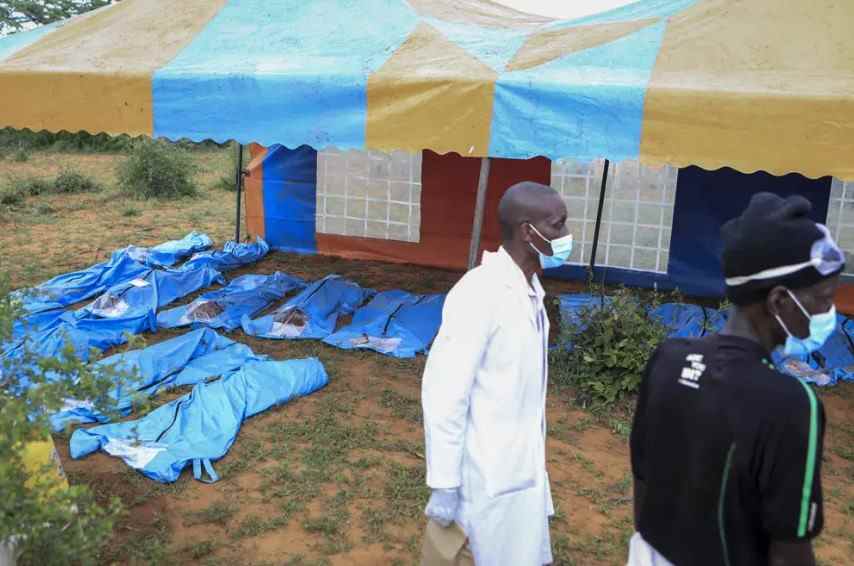The death toll continues to climb in what has been dubbed the “Shakahola massacre” as authorities discovered 22 additional bodies on Saturday, bringing the total number of victims to 201. The horrific incident took place in a forest in southeastern Kenya where a sect, led by Paul Nthenge Mackenzie, advocated fasting to “meet Jesus.”
The coastal town of Malindi became the site of this tragedy, with most of the bodies believed to be followers of Mackenzie’s Good News International Church, a sect he established after working as a cab driver. Rhoda Onyancha, the region’s prefect, announced that 26 individuals, including Paul Nthenge Mackenzie and a gang responsible for enforcing the fast and preventing followers from escaping the forest, have been arrested thus far.
Paul Mackenzie surrendered to the authorities on April 14 after the initial discovery of victims in the Shakahola forest. Since then, approximately 50 mass graves have been unearthed. As operations to exhume the bodies temporarily halt for the next two days, investigators will regroup and resume their efforts on Tuesday, according to Onyancha.
Autopsies conducted on the initial bodies indicate that most of the victims perished due to starvation, presumably as a result of adhering to Mackenzie’s teachings. However, some victims, including children, showed signs of strangulation, physical assault, or suffocation, stated Johansen Oduor, head of forensic operations.
The “Shakahola massacre” has reignited the debate surrounding the regulation of religious practices in Kenya, a predominantly Christian nation with an estimated 4,000 “churches” according to official records. In response, President William Ruto has established a task force tasked with reviewing the legal and regulatory framework governing religious organizations.
This appalling incident serves as a grim reminder of the importance of ensuring the safety and well-being of religious worshippers while also safeguarding against the potential misuse of faith for harmful purposes.
Image Credit: AP




